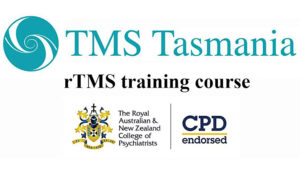Proposed CPD changes by the Medical Board of Australia.
See link below:
https://www.medicalboard.gov.au/News/Current-Consultations.aspx
There is no robust evidence that these changes will improve practitioner knowledge or skills or patient outcomes. This weakness is acknowledged in the Medical Board Consultation Paper page 43:
“The effect of CPD on patient outcomes has been more difficult to demonstrate due to the complexity of intervening variables,”
These CPD demands are based on what some medical bureaucrats feel ‘would be good for doctors’. No more, no less.
It is reassuring to know that others have come to the same conclusion as me on doubting the effectiveness of any particular form of CPD. While I support CPD in principle and have been a career-long practitioner and advocate of it, it must be relevant to the physician and the educational and skills needs of the physician, not the bureaucratic demands of medical board administrators. I was the chair of my College (RANZCP) CPD program and came to the same conclusion that the evidence-base for the effectiveness of any one type of CPD (including the Medical Board proposal that mandates activities that ‘review performance’ or ‘measure outcomes’ form 50% of all CPD) was very weak. As a result, I did not think there was sufficient reason to force or coerce any one type of CPD on my College Fellows. Rather let the doctor determine their CPD needs for the upcoming year and then get on with the relevant activities.
Now we have the Medical Board wanting to mandate certain types of CPD on doctors without justification. It is interesting that on page 43 of the Medical Board’s Consultation Paper on CPD, two papers are quoted as supporting the effectiveness of CPD (see below). One is from 2003 and the other from 2015 and both have the same author (Cervero RM). Both are review articles and do not present data on controlled trails of one type of CPD against another.
But just as importantly, these articles are about CE (Continuing Education) and CME (Continuing Medical Education), not CPD. There is a big difference. Traditional CME is attending lectures, presentations, conferences and reading professional educational literature or online material. CPD is the methods which members of the profession maintain, improve and broaden their knowledge, expertise and competence, and develop the personal qualities required in their professional lives. It now looks like CPD as proposed by the Medical Board includes bureaucratic activities of ‘reviewing performance’ and ‘measuring outcomes’ – activities that have not been undertaken in CME.
There is no evidence in these articles that the form of mandated CPD proposed by the Medical Board is effective. Both articles acknowledge the limitations of the evidence-base on the effectiveness of CME. But both emphasise the importance of providing a variety of CME activities and matching the CME to the needs of individual physicians. This advice is totally at odds to the Medical Board’s proposal to mandate that 50% of CPD effort be devoted to two bureaucratic activities.
Without robust evidence-based justification from controlled studies that the Medical Board preferred CPD is more effective in improving doctor knowledge and skills and improving patient outcomes than other forms of CPD, I believe doctors should not be compelled into the Medical Board mandated form of CPD.
J Contin Educ Health Prof. 2003 Summer;23(3):146-56.
Impact studies in continuing education for health professions: update.
Robertson MK1, Umble KE, Cervero RM.
Author information
1Department of Adult Education, University of Georgia, 143 Highland Park Dr., Athens, GA 30605, USA.
Abstract
INTRODUCTION:
This article critiques the questions asked and methods used in research syntheses in continuing education (CE) in the health professions, summarizes the findings of the syntheses, and makes recommendations for future CE research and practice.
METHODS:
We identified 15 research syntheses published after 1993 in which primary CE studies were reviewed and the performance (behavior) of health professionals and/or patient health outcomes were examined.
RESULTS:
The syntheses were categorized by the research questions they asked using a wave metaphor. Wave One (n = 3) syntheses sought to establish a general descriptive causal connection between CE and impact variables, asking, “Is CE effective, and for what outcomes?” Wave Two syntheses (n = 12) sought to explain the relationship between CE and impacts by identifying causal moderators, asking, “What kinds of CE are effective?”
DISCUSSION:
Wave One findings confirm previous research that CE can improve knowledge, skills, attitudes, behavior, and patient health outcomes. Wave Two syntheses show that CE, which is ongoing, interactive, contextually relevant, and based on needs assessment, can improve knowledge, skills, attitudes, behavior, and health care outcomes. The most important implication of the present review is that there are differential impacts of CE programs, and the reasons for those impacts cannot be fully understood unless the context of the program is considered.
J Contin Educ Health Prof. 2015 Spring;35(2):131-8. doi: 10.1002/chp.21290.
The impact of CME on physician performance and patient health outcomes: an updated synthesis of systematic reviews.
Cervero RM, Gaines JK.
Abstract
INTRODUCTION:
Since 1977, many systematic reviews have asked 2 fundamental questions: (1) Does CME improve physician performance and patient health outcomes? and (2) What are the mechanisms of action that lead to positive changes in these outcomes? The article’s purpose is to synthesize the systematic review literature about CME effectiveness published since 2003.
METHODS:
We identified 8 systematic reviews of CME effectiveness published since 2003 in which primary research studies in CME were reviewed and physicians’ performance and/or patient health outcomes were included as outcome measures.
RESULTS:
Five systematic reviews addressed the question of “Is CME Effective?” using primary studies employing randomized controlled trials (RCTs) or experimental design methods and concluded: (1) CME does improve physician performance and patient health outcomes, and (2) CME has a more reliably positive impact on physician performance than on patient health outcomes. The 8 systematic reviews support previous research showing CME activities that are more interactive, use more methods, involve multiple exposures, are longer, and are focused on outcomes that are considered important by physicians lead to more positive outcomes.
DISCUSSION:
Future research on CME effectiveness must take account of the wider social, political, and organizational factors that play a role in physician performance and patient health outcomes. We now have 39 systematic reviews that present an evidence-based approach to designing CME that is more likely to improve physician performance and patient health outcomes. These insights from the scientific study of CME effectiveness should be incorporated in ongoing efforts to reform systems of CME and health care delivery.
Dr Philip Morris
President NAPP


